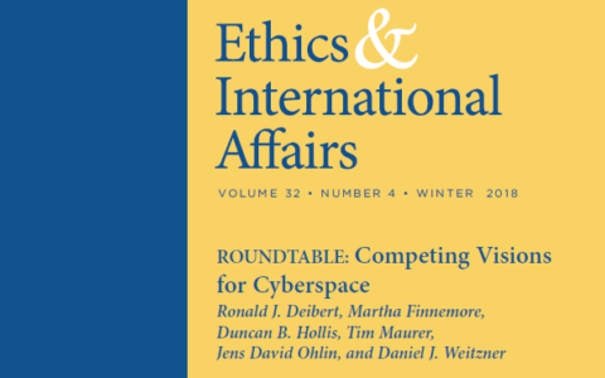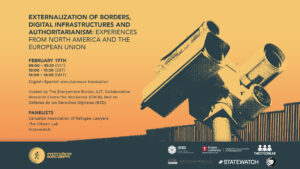Ronald Deibert on Moving Towards a Human-Centric Approach to Cybersecurity

In a recent article for Ethics & International Affairs, Citizen Lab founder and director Ronald Deibert challenges the dominant “national security–centric” approach to cybersecurity, reflecting deep divisions to how the broad topic of cybersecurity is currently approached. This prevailing method delegates responsibility for the security of cyberspace to military, intelligence, and law enforcement agencies, which ultimately lends itself to close comparisons with authoritarian and illiberal practices.
To counter this, Deibert argues for a “human-centric” approach to cybersecurity, which prioritizes the individual as opposed to the state and holds that all cybersecurity laws, policies, and practices should respect international human rights and humanitarian laws. In such a model, sovereign states provide support to institutions whose purpose is the protection of individuals’ well being.
Click here for free, read-only access to the full article
Abstract
A “national security–centric” approach currently dominates cybersecurity policies and practices. Derived from a realist theory of world politics in which states compete with each other for survival and relative advantage, the principal cybersecurity threats are conceived as those affecting sovereign states, such as damage to critical infrastructure within their territorial jurisdictions. As part of a roundtable on “Competing Visions for Cyberspace,” this essay presents an alternative approach to cybersecurity that is derived from the tradition of “human security.” Rather than prioritizing territorial sovereignty, this approach prioritizes the individual, and views networks as part of the essential foundation for the modern exercise of human rights, such as access to information, freedom of thought, and freedom of association. The foundational elements of a human-centric approach to cybersecurity are outlined and contrasted with the prevailing trends around national security–centric practices. A human-centric approach strives for indivisible network security on a planetary scale for the widest possible scope of human experience, and seeks to ensure that such principles are vigorously monitored and defended by multiple and overlapping forms of independent oversight and review.


